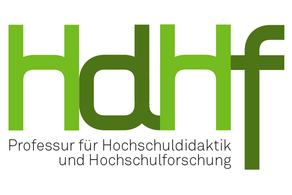Assoc. Prof. Dr. Hugo Horta

Should PhD Students be Engaged in Peer-review?
Date: Tuesday, 2 December 2025
Time: 10.15–11.15 a.m. (CET)
Venue: Online via Zoom
There is a growing perception that peer-review is facing a crisis. Editors and reviewers at international peer-reviewed journals are overwhelmed by an increasing number of submissions, leading to invitation and reviewing fatigue. Additionally, less stringent and developmental reviews, coupled with a greater focus on gatekeeping, have raised concerns that peer-reviewing is not serving science and academia as effectively as it should. In response, there has been a rising demand to expand the reviewer pool beyond the traditional select group of senior researchers to include reviewers from more diverse geographical regions, women, and early career researchers. PhD students, in particular, have been identified as potential reviewers who could help alleviate some of the pressure on the peer-review system. However, questions remain: Are PhD students ready for this role? Are they being trained to be reviewers? Are they engaging in reviewing at all? And will this involvement in peer-review contribute to their research and academic careers?
This study focuses on STEM PhD students in China, a country that is playing an increasingly important role in global knowledge production but is also described as having one of the most imbalanced submission-to-review ratios. Our qualitative study reveals that PhD students are largely engaged in peer-reviewing. They appreciate the experience and the learning opportunities it provides. They primarily engage in what we term “auxiliary reviewing,” where they learn to review alongside their supervisors. “Auxiliary reviewing” is found to be critical for PhD students, helping them gain the confidence to engage in independent reviewing and facilitating their socialization process as they come to view peer-reviewing as part of academic work.
The greatest criticisms from PhD students regarding peer-reviewing in the context of “auxiliary reviewing” are not directed towards their supervisors but towards journals. These journals do not adequately acknowledge collaborative reviewing processes in the same way that manuscript authorship does.
Hugo Horta is an Associate Professor at the Faculty of Education, The University of Hong Kong. His career spans international academia and policymaking, with research experience in universities in North America, Europe and Asia. His research focuses on understanding how institutional setups, individual experiences, achievements and choices in the educational and professional trajectories of PhDs influence research work, collaborations and productivity. Central to his research are the roles of mobility and immobility (academic inbreeding), and the factors influencing the strategic research agendas of academics. Prof. Horta serves as Editor-in-Chief of Higher Education (Springer), a leading journal in the field where he has been on the editorial board since 2012. He is also involved in the leadership and governance of international academic associations, including CHER, HERA, and CHERA. Throughout his career, he has published several works, including 106 peer-reviewed articles—most in top-tier journals in higher education and science policy—as well as 1 book, 27 book chapters, 11 special issues, and 4 edited books. Beyond publishing, he is an active reviewer for leading international journals in higher education and other fields, such as Nature, and serves as an evaluator for prestigious funding agencies such as the NSF, RGC, and ESF.
Higher Education Research Colloquium
Center for Higher Education (zhb)
Professorship of Higher Education





